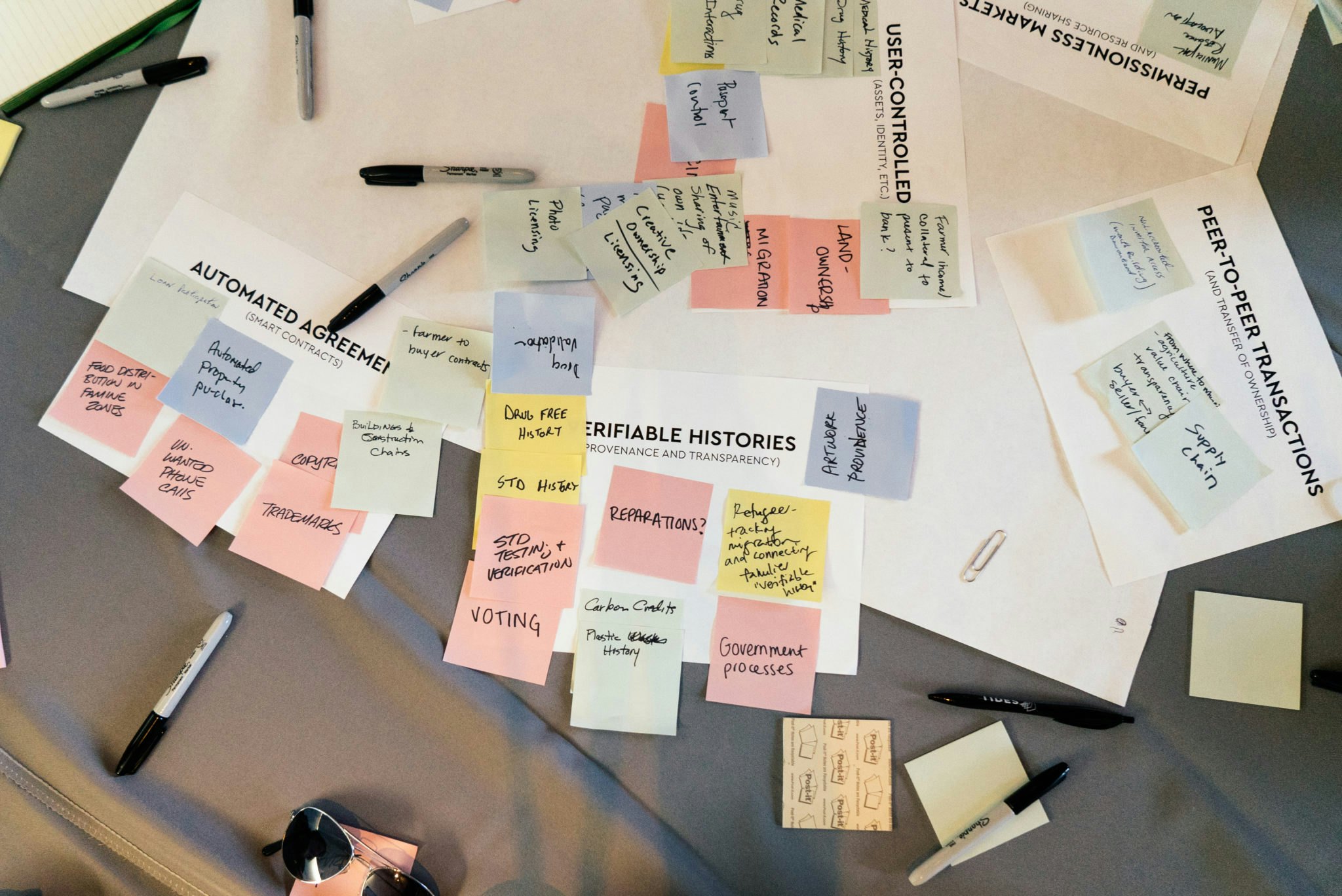Why A Digital Financial System Is Impactful
Access Ventures exists to create an inclusive economy, and our one-pocket mindset channels our investment efforts towards that end. As this blog post lays out, we are always looking to improve our work and become more aligned with our mission.
Unlike most endowments that invest solely into managed funds, Access has always emphasized making investments directly into companies because we believe supporting them at their earliest stage provides a unique opportunity to shape and support their impact.
Evolution Of Our Early-Stage Investments
Our initial direct investment strategy focused on technologies for social good (TSG) which allow the social sector to scale and meet the needs of many marginalized populations, while at the same time providing venture-scale returns to meet our capital planning needs. As we delved further into the economic obstacles facing these populations, we began investing in financial technologies (Fintech) that brought critical resources to the overlooked or underserved.
A few years into our direct investment strategy we began to explore blockchain technology as a potential vertical given its decentralized properties. In short, we saw the potential of decentralized protocols to remove economic barriers for billions of people and provide the foundation for more impact-oriented innovation. We found that blockchain technology promised a blend of both our TSG and Fintech investment theses, while offering an even greater financial return profile. Therefore, in 2018 we made the decision to shift from our individual TSG and Fintech investment efforts and launch a dedicated blockchain fund.
A singular focus on the blockchain investment vertical allowed us to channel all of our efforts into understanding the space and build the expertise necessary to deploy capital into the nascent and complex industry. Additionally, we were able to invest more deeply into valuable relationships with founders and other experts.
When we first began deploying capital from the blockchain fund we took a venture capital approach, rather than simply buying Bitcoin like many other institutions. We chose this approach because it best fit our ethos around early stage investment. Therefore, we took our experience in venture and sought out vision-aligned companies and made private token or equity investments.
While the majority of our early blockchain investments were into projects that were building the future of financial infrastructure, we remained open to all projects that offered growth potential. After a year of making investments, however, it became clear to us that a decentralized digital financial system was the use case that offered the most upside for our efforts, both in terms of impact and financial return. With this in mind, we shifted from our open-ended thesis to one entirely focused on building a new, more equitable financial system.
We believe there is a coming paradigm shift in our prevailing financial system as new technology can significantly enhance the form, function, and impact of existing systems.
Our New Investment Thesis
We believe there is a coming paradigm shift in our prevailing financial system as new technology can significantly enhance the form, function, and impact of existing systems.
The Legacy Financial System
A financial system is designed to facilitate the exchange of value between parties. Originally this occurred in a peer-to-peer fashion, however as the economy expanded and more parties entered into transactions the need for a coordinated system emerged.
Similar to the exchange of most goods and services, financial activities are best organized through a marketplace. Over time, our modern, and now global, financial marketplace has grown from simple to complex as more opportunities to utilize capital have come to exist. Presently the financial markets include a vast array of products and the counterparties have expanded to insurance companies, hedge funds, and a myriad of others.
Trusted third parties have emerged as the central figures of this modern financial system, eliminating the counterparty risk associated with an exchange of value, and enabling the trust and good faith between individuals and institutions that facilitate financial transactions. Without these intermediaries the current financial market could not exist.
While the benefits of a more organized financial system at the hands of centralized parties are vast, a byproduct of this system is the creation of economic gatekeepers. These gatekeepers have the power to exclude certain parties from their services and that reality can have devastating effects on large groups of people. An often-cited example of this is the 1.7 billion people that do not have access to the formal financial system.
Similarly, the ability to grow and improve the financial system is dependent upon the willingness and ability of these central parties to adapt to market conditions. The current system is subjectively unwilling and objectively unable to match the pace of innovation unlocked by new technologies. The financial sector has lagged behind almost every other sector in adopting innovation, despite its prominent role in our social and economic society.

The bits of innovation embraced by the financial system have been limited to upgrades to the existing financial intermediary infrastructure. A common misconception is that banking, for example, has entered the digital age as evidenced by services such as Zelle. As our portfolio company Eco points out, the new offerings are still built upon legacy systems. While Zelle has improved user experience, and in some cases the user interface, the truth is that it is simply an agreement between counterparties to share the risk of a transaction prior to verification of trust and payment settlement. The actual transaction follows the same process outlined in the 1970s:
1. Upon notification of a proposed transfer, a bank will create a digital file equivalent to a check.
2. The digital file is added to a batch that is sent to large, regional intermediary banks, usually a couple times per day. Sometimes, if they haven’t upgraded their technology, the regional bank will print out a picture of the check, and then re-scan it into their system.
3. The intermediary bank sends the file to a clearinghouse to verify all aspects of the transaction have been honored by counterparties.
4. Each night, the clearinghouse processes and settles the transfer, thus completing the process.
Changes at a fundamental level within the current financial system are constrained by three notable reasons. First, the system is highly regulated and thus limited to the pace of technological adoption by lawmakers. Second, the risk associated with an overhaul of the current system is often considered prohibitive. Not only is the cost of an infrastructure-level change exorbitant, the potential to destabilize the global economy is high. Third, financial intermediaries are deeply entrenched, with significant economic and political power. The US financial system is dominated by a select few private institutions with an incentive to stifle competing innovation and rebuff outside, disruptive technologies.

A Digital Financial System
While legacy financial institutions struggle with innovation, independent technologies have emerged with the capabilities to modernize and enhance the existing system. These technologies provide a flexible base on which ongoing improvements can take place.
If the role of the financial system is to facilitate the exchange of value, key to this is ensuring that a transaction has successfully occurred. For more than 600 years intermediaries have utilized a ledger system to record activity and validate balances. The record-keeping method has been effective, but not without drawbacks associated with information asymmetry as ledgers are privately maintained. Decentralized blockchain technology was developed to address the drawbacks.
The efficient nature of decentralized blockchain technology can offer non-zero sum profitability. Utilizing decentralized protocols recreates the peer-to-peer nature of a transaction without sacrificing risk mitigation, while simultaneously removing the numerous intermediaries that would otherwise be necessary to facilitate the exchange. For instance, take the Zelle example noted above: through blockchain technology the cost of verification is drastically reduced as software replaces the labor and system-intensive process of transaction settlement. The five steps in the Zelle process are replaced by a software protocol; a financial transaction can now process as efficiently as an email exchange.
Economic inclusion is the lifeblood of Access Ventures and we are convinced a digital financial system is integral to that future.
The efficiency gains extend beyond sending and receiving money to the broad array of products that exist in modern financial markets. In fact, over the past three years, blockchain protocols have been leveraged to create decentralized alternatives to products that range from lending to insurance.
More importantly, financial products have been improved through composability which allows one offering to seamlessly integrate the best aspects of other products. For example, yearn.finance improves on the traditional savings account by optimizing your deposit by rotating into loan products with the highest yield available across all markets.
With greater transparency, security, efficiency, and potential for innovation, decentralized blockchain technology can redesign all aspects of the financial system.
Why This Is Impactful
Decentralized blockchain technology has the ability to create a financial system that works for all people. To be truly inclusive. Economic inclusion is the lifeblood of Access Ventures and we are convinced a digital financial system is integral to that future. This is why Access Ventures enthusiastically invests into companies and protocols that will transition us from a legacy financial system into an enhanced, inclusive digital financial system.
Learn more about our blockchain portfolio and the real world impact it is creating here.



